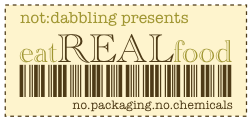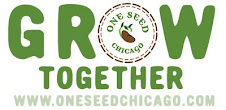We think of sustainability as going "back to the land," and "real" as attaining the rural ideal that is so central to our American mythos.
But in fact, what differentiated us from our uncivilized origins was our invention of the city--a settled collection of people, working together for the common purpose of survival. In many ways, cities and towns are more "natural" places for us to live-- after all we are social creatures, suited by biology to living in groups. City dwellers are just as real as anyone else, and there are a lot more of us. And it's going to stay that way, whether you like it or not. It used to be that you lived on a farm, or in a small town. And then it was your parents who lived there. Then a generation came where they would just visit their grandparents on the farm. Now there's been a couple of generations for whom the farming past is out of living memory, and the family farm is a trip down an unfamiliar country road "I think it's around here somewhere."
Cities are where we live. And cities do a lot of things better-- diversity, economies of scale, specialization, cultural life. What we don't do, what we can't do, is grow things in concentrated farms. Based on our current food system, cities need to import their food. The very things that make cities attractive make food production expensive and cumbersome. In our current food system, cities have to import their food.
During and after the Great Migration when rural southerners moved to northern cities, during the waves of European and Chinese migration, and after the Dust Bowl which displaced hundreds of thousands of farm families, new city migrants brought their farming and gardening traditions with them. Unfortunately, as noted, that rural past is now so far past that it's barely even family story anymore, and the practical knowledge is lost in many families.
About 15% of any given city's land is "vacant." In cities suffering depression this number may be higher (hence the Urban Farm movement in Detroit). As far as I can find out about 16% of urban dwellers have access to enough yard to put in a garden. Doesn't sound like enough space to grow food for a million people, does it?
But in 1943, Chicagoans grew all the produce they needed, in vacant lots and backyards, as did many other large urban centers, through the Victory Garden movement.
We don't need to put in farms to be able to grow food in cities, of course. Everyone with a yard can have a garden. It doesn't even need to be your own. Lots of people join community gardens, although there is way more interest than there is land for this use and new regulations are starting to discourage the start of new ones on public land in some places. But while there are lots of gardeners with no land, there are even more private landholders with no gardens. There is a small but growing local industry in hiring out your gardening--someone else puts a garden in your yard. In exchange for the land, you get some of the harvest. Or do what The Peterson Garden Project in Chicago did-- find some vacant, privately-owned land, and talk the landowner into letting you put in a garden, even if just for a couple of years until the land sells.
Everyone should grow at least some of their own food. I come from five generations of city dwellers myself-- not a gardener in the bunch. If I can learn to garden, anyone can. Taking back control of this most basic need, even if it's just tomatoes or blueberries in a pot on a porch, is reconnecting urban Americans with the land that is so important to our psyches. And it's giving us back the means of production, giving ordinary people control of this most basic need.
Cucumber-corn chowder
1 quart cucumber, cubed
2 cups corn
1 large carrot, sliced
1 large onion, sliced
10 small new potatoes, halved (or equivalent red or yukon)
2 cloves garlic
1 T chopped fresh parsley
4 T butter
2T flour
2 cups stock (chicken or vegetable; make sure it's a "white" stock or the soup will be ugly!)
>1 cup milk
1 cup half-half
2 yolks eggs
pepper and salt to taste
Cook the potatoes separately in water or the microwave, until al dente (a little underdone; they'll finish cooking in the soup). I used frozen cukes, but if you have fresh, peel, seed and dice. Dice onions and garlic (or use a garlic press) and saute in 2 T butter with the parsley and dill seeds in the soup pot about 5 minutes (the cukes will turn a bright light green). Heat the stock to a simmer. While it's heating, add the additional butter to the vegetables, melt, then dredge with the flour, letting it simmer, but not brown, about 2 minutes. Add half the stock about a quarter cup at a time, allowing mixing it well with the dredged vegetables. It should thicken each time. Add the rest of the stock, simmer 20 minutes. Add the potatoes, carrots, corn and milk, bring to a light simmer. Continue to simmer until it thickens slightly. Allow to cool to just a little too hot to eat.
Lightly beat the half-half and egg yolks, pour a little boiling soup on to them, stirring at same time, then return it to the hot soup, stirring constantly; it must not boil again or it will curdle. Season to taste with white pepper and salt. Thin with a little half-and-half just before serving.
You can add a little sauteed andouille sausage to this for the carnivores among you.
5 days ago









I find it interesting that so many people "want" to grow some things. They think it is great that I grow things, and how homegrown tastes so good, etc., etc. And in the same sentence they wish they could do grow some things. When I mention they can do something simple like a few tomatoes plants in containers on their deck, they find all sorts of reasons (excuses) why they can't do that. I am excited to grow my own food. I am planting more this year than last year. It is great. Emily
ReplyDeleteThis is why new consumer goods like Earthboxes are so great-- they remove a lot of that "I don't have time, knowledge, bramblepup"
ReplyDelete